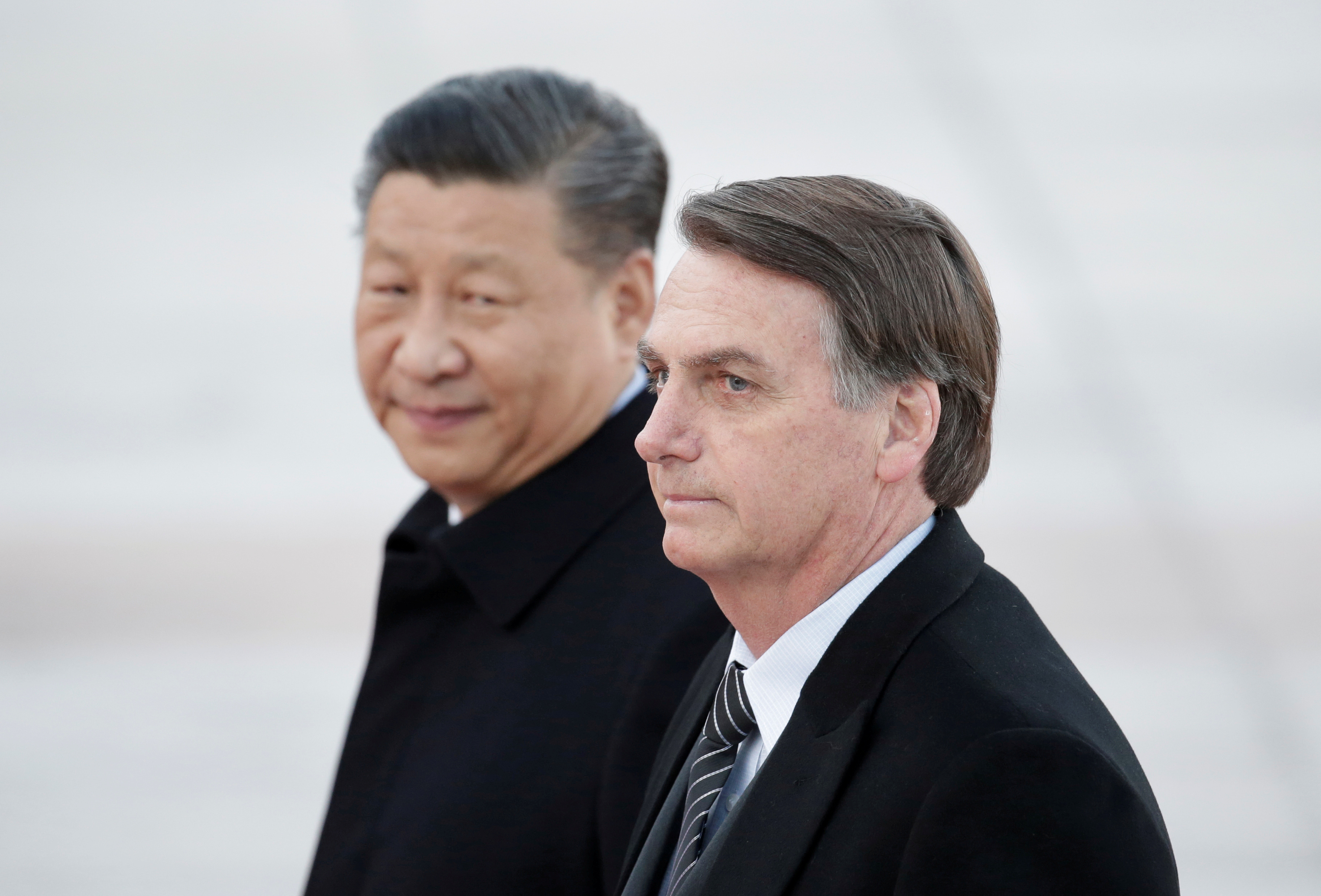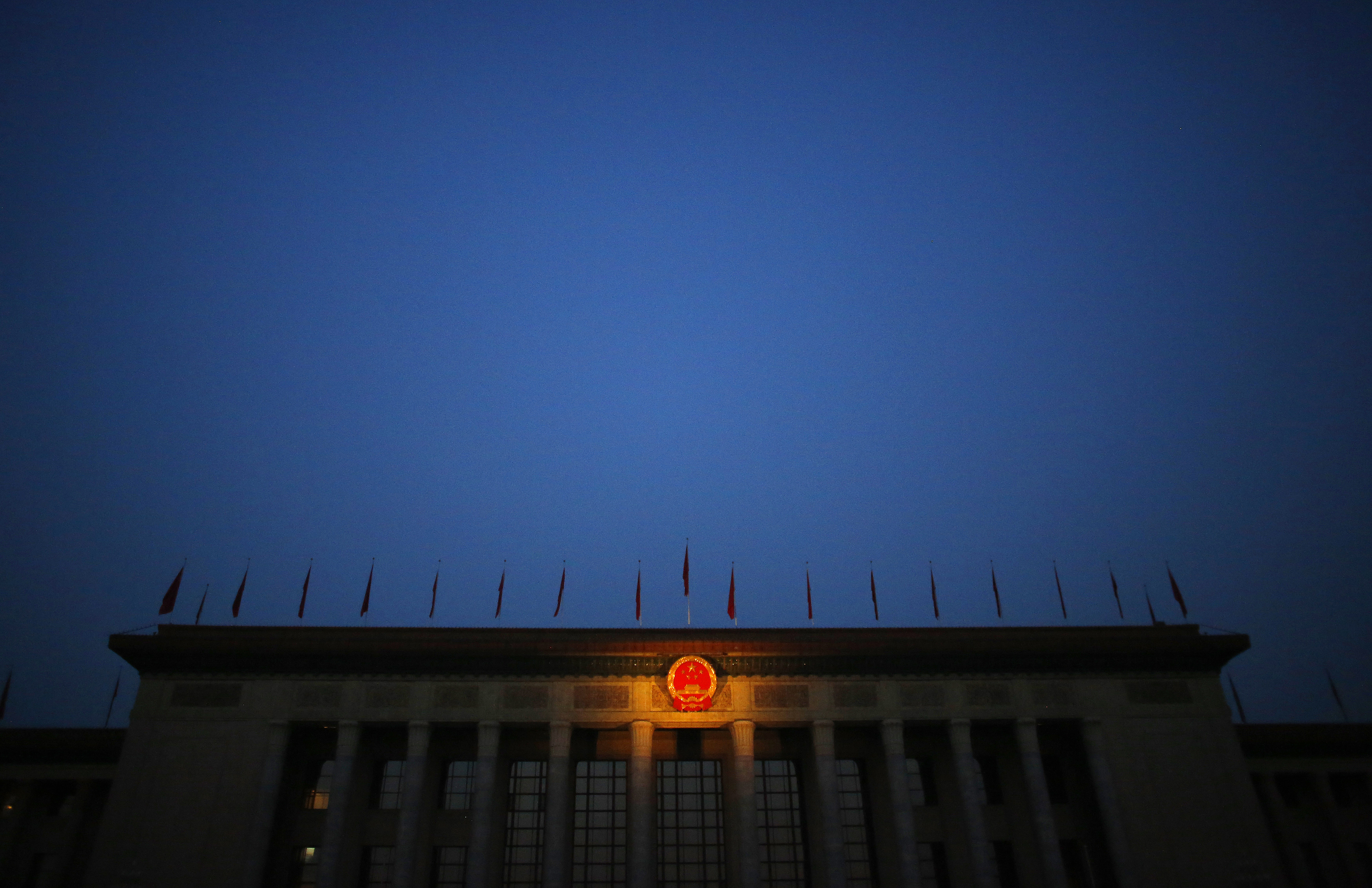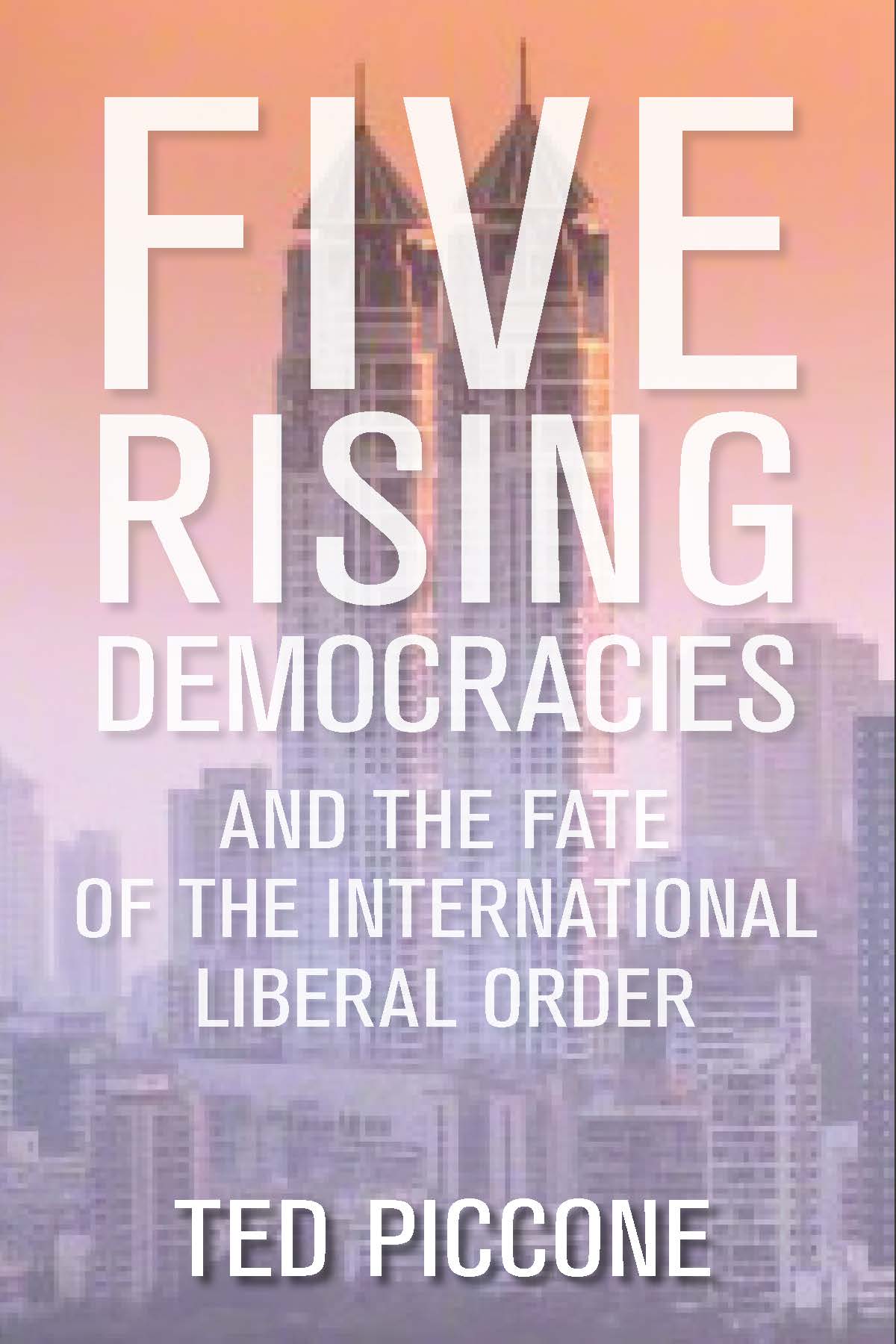

Harold Trinkunas Former Brookings Expert, Interim Co-Director and Senior Research Scholar, Center for International Security and Cooperation - Freeman Spogli Institute for International Studies, Stanford University, Antiguo experto de Brookings



Brazil is China’s most important economic and political partner in South America, as well as a key participant in the Brazil, Russia, India, China, and South Africa (BRICS) grouping of emerging powers that China increasingly leads. When it comes to global aspirations, China and Brazil have historically been in sync on their critiques of the liberal international order, if not on their preferred remedies. Historically, their prescriptions for foreign policy differ in important ways. China would prefer a world order that better accommodates its interests, and it is becoming less reluctant to use the threat of force in foreign policy to maintain its ascendancy in its geopolitical neighborhood. Brazil traditionally has preferred a rules-bound liberal international order that applies to everyone, especially superpowers. Unlike China, it foreswears the use of coercion in international affairs, even to protect its interests in its immediate neighborhood, South America.
Since President Jair Bolsonaro assumed office in January 2019, this historical pattern has been upended. Bolsonaro and his foreign policy team have adopted a strongly pro-U.S. (specifically pro-President Donald Trump) agenda internationally, including engaging in frequent critiques of China. Domestically, the partnership with China has been controversial with some sectors. Specifically, the partnership is criticized by the Brazilian manufacturing sector, which faces strong competition from Chinese products and lacks reciprocal access to Chinese market, and by nationalist-populist voters who support Bolsonaro. Agricultural export interests, by contrast, favor a strong relationship with Beijing because China is a major market for their products.
While initially restrained in response to criticism from the Bolsonaro administration, Chinese diplomats have struck back in 2020 in interviews and op-eds with local media. 1 This confrontational dynamic is a marked departure from the historical trend in Brazil-China relations, which has trended toward deeper economic and political relations. China has a long-term interest in a close diplomatic relationship with Brazil, important both for its strategy in Latin America and maximizing its global leadership. Beijing is unlikely to want this tension to become the “new normal” in its relations with Brazil. In the face of the COVID-19 pandemic, the Bolsonaro administration has steered an erratic course between conciliatory rhetoric, seeking Chinese assistance against the novel coronavirus, and further criticism. 2 Despite the preferences of its current foreign policy team, Brazil has important long-term strategic interests in maintaining a working partnership with China.
Brazil’s path toward emerging power status has been a rocky one, as it has tried different strategies to secure a seat at the table to negotiate a place in the international order commensurate with its aspirations. It has vacillated between collaborating with the United States, as occurred during World War II and during the 1990s after the end of the Cold War, and charting its own autonomous path to great power status during the Cold War and during first decades of the 21st century. Each time, Brazil’s aspirations have been undermined by profound crises in its domestic political and economic arrangements that have belied its claim to great power status. 3
During the periods when it sought international autonomy, Brazil has found in China an attractive partner in criticizing the liberal international order fostered by the United States in the wake of World War II.
During the periods when it sought international autonomy, Brazil has found in China an attractive partner in criticizing the liberal international order fostered by the United States in the wake of World War II. Brazil’s military government established diplomatic relations with the People’s Republic of China in 1974, ending its recognition of the Republic of China (Taiwan), and China and Brazil entered a “strategic bilateral partnership” in 1993, initially focused on economic and technological cooperation, but eventually evolving into a more global partnership. 4 Both prioritized relationships with the Global South based on solidarity, non-intervention, and mutual respect, deliberately contrasting their approach with that of the superpowers. In particular, they criticized the degree to which the United States ignored the rules of the rules-based liberal order it purportedly championed. What bound the two countries together was a critique of the international system as stacked against the developing world. Both China and Brazil have sought rapid economic and technological development (although China has had much greater success) and have pursued industrialization as an important means to international autonomy and a seat at the table of the world’s major powers. 5
One of the signature institutions via which China-Brazil international cooperation has become more formalized is the BRICS partnership. BRICS brings together Brazil, Russia, India, China and South Africa to address global concerns of mutual interest. A club of “emerging powers” (although Russia is arguably declining), BRICS has served as a venue for mutual admiration, for club deals among the members, and sometimes for proposing an alternative world order. Particularly when seeking reforms in the liberal international order, the BRICS countries have proposed alternatives to existing institutions such as the BRICS Development Bank (an alternative for the World Bank) and the Contingency Reserve Arrangement (an alternative for the International Monetary Fund). 6 Both China and Brazil have found BRICS a useful mechanism to signal to the incumbent great powers that rising states have both the capacity and the interest in establishing their own global institutions, even though these are yet nascent and may not prosper.
China and Brazil’s relationship is grounded on an expansive trade and investment relationship. China began to trade abroad with South America in significant terms after 2000, initially focused mostly on acquiring commodities to supply its rapidly growing industrial base and feed its population. 7 Brazil is one of the most productive agricultural export economies in the world, rivaling the United States in this area, as well as a significant exporter of mineral products. By 2019, bilateral trade reached over $100 billion, making China the main destination for Brazilian exports. 8 The China-U.S. trade rivalry under the Trump administration benefited Brazil as China shifted its food trade away from the United States, and Brazil’s highly competitive agricultural exporters were eager to take up the slack. 9 After 2005, when China began to invest abroad, Brazil also became a significant destination for its foreign direct investment, first in the commodities sector, but then in a wider array of infrastructure projects. By 2017, over half of China’s investments in South America were destined to Brazil. 10 Although not formally a target for China’s signature Belt and Road Initiative, Brazil’s global interests and export markets are clearly affected by China’s overseas investment programs, not least of which because it tends to shift the global economic center of gravity away from the United States, one of Brazil’s other major international trading partners. 11

David R. Mares, Harold A. Trinkunas

February 23, 2016
However, these trends are not all entirely positive for Brazil or for its relationship with China. Brazil has suffered from a persistent failure in industrial policy, which among other factors has contributed to the deindustrialization of its economy and loss of well-paying formal sector jobs. This is in part due to competition from cheap Chinese manufactured imports. The Brazilian industrial sector, traditionally able to rely on a large domestic market, has favored protectionist policies historically and is not fully competitive globally. It has thus been unprepared to deal with relatively less expensive Chinese imports. In addition, Brazil’s manufacturers face non-tariff barriers when attempting to export to China. While Brazil’s exports to China have soared since 2000, the overall effect has been to emphasize the agricultural and mining sector at the expense of the manufacturing sector, which tends to have higher Brazilian value-added. 12
Since winning office in 2018, Bolsonaro has oscillated between the highly critical stance on China that he campaigned on and a conciliatory approach reflective of the importance of economic and trade relations between the two countries. His foreign policy team, led by Foreign Minister Ernesto Araújo, represents a radical break with recent Brazilian diplomatic tradition. Abandoning Brazil’s traditional policy of autonomy in foreign policy, the Bolsonaro administration has adopted a highly pro-U.S. approach, mimicking the international policies of the Trump administration, even following the U.S. lead in announcing that it would move its embassy in Israel from Tel Aviv to Jerusalem which resulted in heavy criticism from Brazilian agricultural exporters concerned about markets in the Arab world. 13 Challenging this tendency are the government officials viewed as the “adults in the room,” led by Vice President Hamilton Mourão, a former Army general, and including Economics Minister Paulo Guedes and Agriculture Minister Tereza Cristina. The business community, particularly the agricultural sector, is not in favor of any policies that would upset commercial relations with China, especially since they think it unlikely that the United States would open up to imports of Brazilian agricultural and mining products. 14
Although the Brazilian government’s criticism of China was tempered in 2019, particularly in the lead up to a BRICS summit in Brasília, the coronavirus pandemic crisis has brought the worst of Bolsonaro’s anti-China rhetoric to the fore. His allies and followers have engaged in anti-China conspiracy-mongering around the origins of the pandemic in social media, claiming it is an attack on capitalism, echoing arguments put out by far-right circles in the United States. In fact, the degree of political polarization in Brazil is rivaled only by that in the United States. For example, Bolsonaro’s supporters have widely accused the “adults in the room,” such as Guedes, Cristina, and Mourão, of being “secret communists” on social media. In the meantime, Chinese diplomats have responded forcefully in the Brazilian media, triggering further controversy.
This is all occurring as Bolsonaro, who tends to dismiss the pandemic as a hoax, has presided over one of the worst government responses to the crisis in the world to date. 15 Since the pandemic began, Bolsonaro has fired or lost two health ministers, and no permanent replacement has yet been appointed. Bolsonaro’s family is suspected of ties to corruption and other crimes. There is increasing talk of impeachment in Brasília, and Bolsonaro lacks a sustained base of support in the Brazilian legislature. The Supreme Court has taken a keen interest in allegations made against the president. 16 Supporters of Bolsonaro have encouraged a military coup d’état if any actions are taken against the president or his interests. 17 This is particularly significant because Bolsonaro has increasingly militarized his government, particularly the health ministry, which places the armed forces in an awkward situation since military officers with no public health experience may be left holding the bag for a government that is failing to adequately address the pandemic. 18 The armed forces have been a silent partner for Bolsonaro throughout his presidency, but the current situation may place the normally popular military at risk of suffering reputational damage. 19
With both Bolsonaro and Trump under severe domestic criticism for their handling of the coronavirus pandemic (Brazil’s policies mirror that of the United States), any change of course with regards to China policy may well take a back seat to domestic politics, electioneering and simple political survival until after the 2020 U.S. presidential elections. Trump has consistently sought to raise the anti-China card as part of his reelection campaign, and this effort may have foreign policy implications, including for U.S.-Brazil relations. We could imagine that the Trump administration might put more pressure on Bolsonaro to foreswear cooperation with China, and Bolsonaro has shown a tendency to follow Trump’s lead across a range of issues, not just on the coronavirus response. However, China’s economy appears poised to recover more rapidly than that of the United States due to its more effective coronavirus response. As U.S.-China trade relations deteriorate, Brazil is the natural alternative to U.S. suppliers for Beijing to secure imports of food and other commodities. Additionally, there is a long tradition in Brazil of enacting laws “para inglês ver,” i.e. for the English (foreigners) to see. In other words, policies that look good on paper but, in practice, are never enforced. If Brazil were to face Trump administration pressure, it might be more practical to feint publicly towards a harder line on China while its private sector commodity producers seek to export as much as possible, especially in the face of a severe global recession.
For China, it may be best to wait out the current political debacle in Brasília. Bolsonaro lacks deep roots in Brazil’s establishment or party system. In addition, Brazil trades twice as much with China as with the United States, a trend accentuated by recent U.S.-China trade disputes. 20 The rise of China as a counterweight for U.S. hegemony will remain appealing in the long-term for Brazilian officials and foreign policy analysts who seek to maximize their country’s strategic autonomy internationally. For China, a “strategic partnership” is appealing to significant political and economic interests in Brazil, which suggests this approach will win out in the long run.
On the other hand, for the United States and Brazil, their international economic interests are not naturally aligned. In many important agricultural and mineral commodity export markets, their economies are not complimentary, but rather in competition with one another. Moreover, Brazilian diplomats have a long memory for all the times the United States disregarded Brazil’s interests, let alone failed to build a special relationship. Brazil and U.S. interests are poorly aligned in South America, an area where Brazil seeks to preserve its freedom of action rather than cooperate. This means that over time, despite an affinity between Bolsonaro and Trump, we should expect a reversion to the mean in U.S.-Brazilian relations, which historically have been correct, but distant.